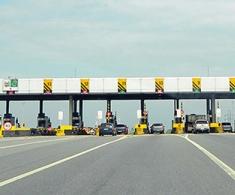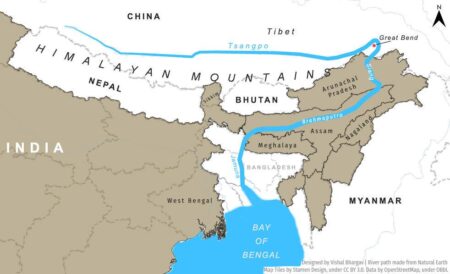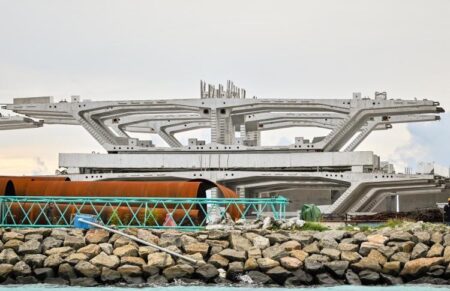Italy is making bold investments in infrastructure as it gears up for the upcoming international Games, sparking hopes for a surge in economic growth and new job opportunities. The government sees this ambitious push as a powerful way to breathe new life into local communities and boost Italy’s presence on the world stage
Browsing: infrastructure development
India’s infrastructure output soared by 1.8% year-on-year in November, powered by robust gains in the electricity, gas, and water supply sectors, Reuters reports. This remarkable growth underscores the dynamic momentum propelling the nation’s industrial infrastructure to new heights
China has crafted a stunning cricket pitch on the picturesque island of Grenada, highlighting its bold ambition to strengthen diplomatic ties and broaden its influence throughout the Caribbean. This remarkable project shines a spotlight on Beijing’s growing cultural and political footprint in the region
India’s voracious demand for affordable steel is sending shockwaves through global markets, driving environmental harm and sparking critical labor concerns. As prices soar worldwide, the country faces mounting economic challenges alongside pressing ecological crises
Canadian potash powerhouse Nutrien is gearing up to transform its export game with a cutting-edge new terminal in the U.S., completely bypassing British Columbia. Officials say this daring shift will supercharge operations and open the door to quicker access to key markets
The United Kingdom has unveiled a groundbreaking Railways Bill poised to revolutionize the national rail network like never before. This bold legislation promises upgraded infrastructure, enhanced passenger services, and a greener, more sustainable travel experience for everyone
Canada is eager to broaden its trade partnerships, but the Canadian Climate Institute stresses that building climate-resilient infrastructure is crucial to support this shift and safeguard the economy against the rising dangers of extreme weather
Kanastra has secured an impressive $30 million in a Series B round led by F-Prime, poised to transform Brazil’s private credit landscape. This new funding will accelerate the development of groundbreaking technology and drive swift expansion throughout the region
Canada and the BC Government have officially given the green light to the Ksi Lisims LNG project along the breathtaking Pacific coast, marking a game-changing milestone for the region’s energy future, reports Baird Maritime. This bold venture promises to turbocharge LNG exports and breathe new life into the local economy like never before
India’s ambitious plan to revolutionize Great Nicobar Island with new ports and airports is sparking intense environmental debates. Experts warn that Modi’s visionary projects could inflict lasting harm on the island’s fragile ecosystem and disrupt the traditional lives of its indigenous communities
Thailand, Laos, and China are racing ahead with the construction of the second Nong Khai-Vientiane Friendship Bridge, a game-changer poised to revolutionize regional connectivity and turbocharge trade. This thrilling new connection promises to unlock seamless travel and ignite powerful economic partnerships across Southeast Asia
The US$1.3bn concession for a major Brazilian highway has sparked intense competition, drawing bids from top infrastructure giants. This exciting development highlights the growing investor enthusiasm sweeping through Latin America’s transport sector
China has launched a bold and ambitious dam project on the Brahmaputra River in Tibet, sparking serious concerns in India over possible control of water flow and risks to water security. Experts warn that this move could dramatically impact agriculture and disrupt the livelihoods of millions living downstream
China is supercharging its maglev train technology, setting its sights on toppling Japan’s decades-long dominance. This daring move sparks intense competition in high-speed rail innovation across Asia, launching an exhilarating new era of transportation rivalry
Work on the India-funded Thilamale Bridge has now surged ahead to an impressive 60% completion, officials confirmed. This crucial project promises to revolutionize local connectivity and spark major development in the region, with full completion expected by late 2024
Canada is on the brink of approving a groundbreaking infrastructure bill set to turbocharge the economy, but fierce opposition from Indigenous groups is raising urgent alarms about ignored rights and pressing concerns. This intense debate highlights the deep-rooted tensions over land and governance like never before
Ahead of the UN climate talks, Brazil is rapidly accelerating oil drilling and highway projects in the Amazon, igniting worldwide concern over escalating deforestation and the devastating impact on the planet’s largest rainforest
Russia’s Rosatom and China’s CNNC have been chosen to lead consortiums that will build Kazakhstan’s inaugural nuclear power plants, marking a groundbreaking step in the Central Asian nation’s ambitious push to diversify its energy landscape, Reuters reports
China is making a bold move by committing billions in investments to Latin America and the Caribbean, all in a bid to strengthen its foothold in the region as competition with the United States intensifies. This ambitious initiative underscores China’s strategic vision to broaden its global influence and forge deeper connections across continents.
In an exciting development, China is poised to boost its investments in Brazil by a staggering $27 billion, as revealed by President Lula. This strategic initiative is designed to fortify economic connections and elevate collaboration in key areas such as infrastructure and energy, marking a significant step towards a dynamic partnership.




















